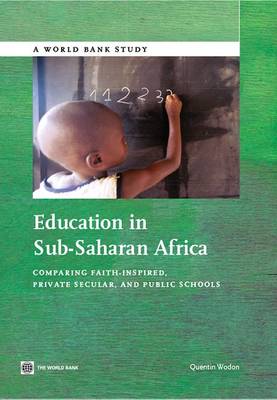The purpose of this study is to build a stronger evidence base on the role of faith-inspired, private secular, and public schools in sub-Saharan Africa using nationally representative household surveys as well as qualitative data.
Six main findings emerge from the study:
(1) Across a sample of 16 countries, the average market share for faith-inspired schools is at 10-15 percent, and the market share for private secular schools is of a similar order of magnitude;
(2) On average faith-inspired schools do not reach the poor more than other groups; they also do not reach the poor more than public schools, but they do reach the poor significantly more than private secular schools;
(3) The cost of faith-inspired schools for households is higher than that of public schools, possibly because of a lack of access to public funding, but lower than that of private secular schools;
(4) Faith-inspired and private secular schools have higher satisfaction rates among parents than public schools;
(5) Parents using faith-inspired schools place a stronger emphasis on religious education and moral values;
(6) Students in faith-inspired and private schools perform better than those in public schools, but this may be due in part to self-selection.
- ISBN13 9780821399651
- Publish Date 10 February 2014 (first published 10 January 2014)
- Publish Status Active
- Publish Country US
- Imprint World Bank Publications
- Format Paperback
- Pages 156
- Language English
